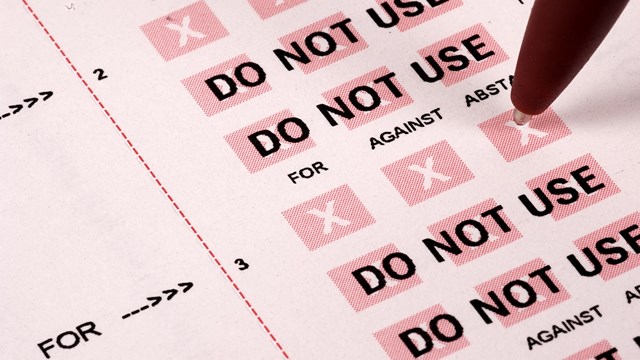
Q. Can a previous signed proxy be used a year later? How long is a previous proxy effective? I am a condo owner.
—Curious Owner
A. “A proxy is a written document, in a form designated by the board of directors or trustees,” says attorney Hubert Cutolo of the firm Cutolo Barros, which has locations in New Jersey, “that permits a member in a common interest community to assign his or her voting rights to another person, the proxy holder. Proxies are typically used where the member is unavailable to attend the meeting when the vote is to be cast and wishes to participate in the vote. Proxies may be general or specific. A general proxy is where the proxy holder may vote on behalf of the member, but substitute his or her discretion for that of the member when casting the vote. A specific proxy is where the member provided express instructions that the proxy holder must follow when casting the vote.
“As a general premise, in New Jersey, the majority of common interest communities are nonprofit corporations. As nonprofit corporations, New Jersey common interest communities must comply with the requirements of the New Jersey Nonprofit Corporation Act, N.J.S.A. 15A:1, et seq., (the “Nonprofit Act”). As a preliminary matter, the Nonprofit Act requires that any proxy be executed in writing by the member or the member’s agent. See N.J.S.A. 15A:5-18(a). Generally speaking, a proxy is revocable at will.
“Notwithstanding the foregoing, the member must file a written notice of revocation of his or her proxy with the secretary of the meeting in the event the member wishes to cast a vote in person at the meeting. Otherwise, the member may not revoke his or her proxy. All members of common interest communities should be mindful of this requirement in the event he or she issues a proxy and seeks to revoke the authority granted to the proxy holder at the eve of the election.
“A proxy is only valid for 11 months unless the form of the proxy expressly provides for a longer time period. However, the Act provides that in no event shall any proxy be valid after three years from the date of its execution.”






Leave a Comment